Services
Open Pits
At Beck Engineering, we provide advanced 3D finite element modelling (FEM) solutions to support open pit operations. Our models simulate the geomechanical response of the rock mass throughout excavation, enabling safer, more cost-effective shaft development and long-term performance.
There is a trend for open pits to be mined greater depths than before. The greater depths are leading to higher underlying stains in the slope and failures arising from rock mass instability have become more prominent. These failures include instabilities resulting from the combined effects of the induced slope damage and structure, as well as structurally controlled failures.
Mine-scale, discontinuum numerical modelling has been shown to provide reliable forecasts of open put behaviour under diverse geotechnical conditions. The be effective, models should include structure, water, detailed three-dimensional geometry and a realistic material model, which are the main controls on pit stability, as every geotechnical engineer understands.
About
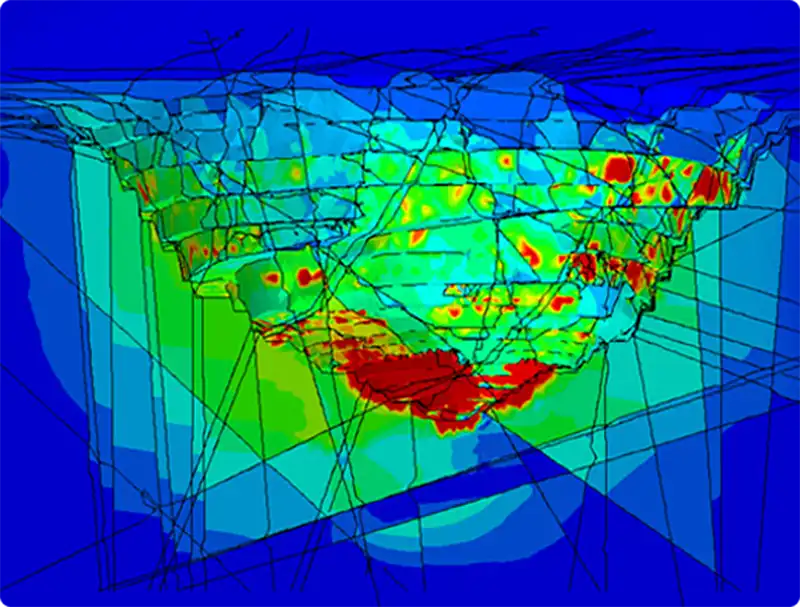
Cut-away section through an open pit showing modelled displacement magnitudes.
Model Features
New modelling frameworks have been developed that better capture the interaction between all of these controls on stability: rock, structure and water. We call this approach “high similitude modelling” which includes:
- Detailed three-dimensional geometry, including as-built pit shells, future designs, topography and schedules
- Explicit structures, such as faults, shears, weak contacts and altered dykes
- Time effects where data allows
- realistic material models for the rock and structures including strain-softening (cumulative damage) and dilatant behaviour
- Inclusion of pore water pressure and groundwater percolation effects as well as flow faults.
- Direct calibration against field measurements of block and underlying slope movements, for model validation and calibration
- Quantified reliability and certainty
Why 3D FEM?
As open pits are mined deeper, stability challenges become more significant. Deeper pits can lead to:
- Simulation of ground movement and failure
- Calibration with real-world monitoring data
- Analysis of historical and potential failure mechanisms
As open pits are mined deeper, stability challenges become more significant. Deeper pits can lead to:
- Higher stress and strain in the rock mass
- Increased risk of slope failure
- More complex failure mechanisms involving structure and excavation damage
Traditional 2D methods often oversimplify these problems. 3D FEM provides a realistic, full-scale simulation of pit behaviour, capturing:
- Lithology, weathering and structures
- Groundwater and pore pressure
- Complex pit and underground geometry and mining stages
- Non-linear rock behaviour over time
This level of detail improves accuracy and helps identify risks early – leading to safer, more efficient mine designs.
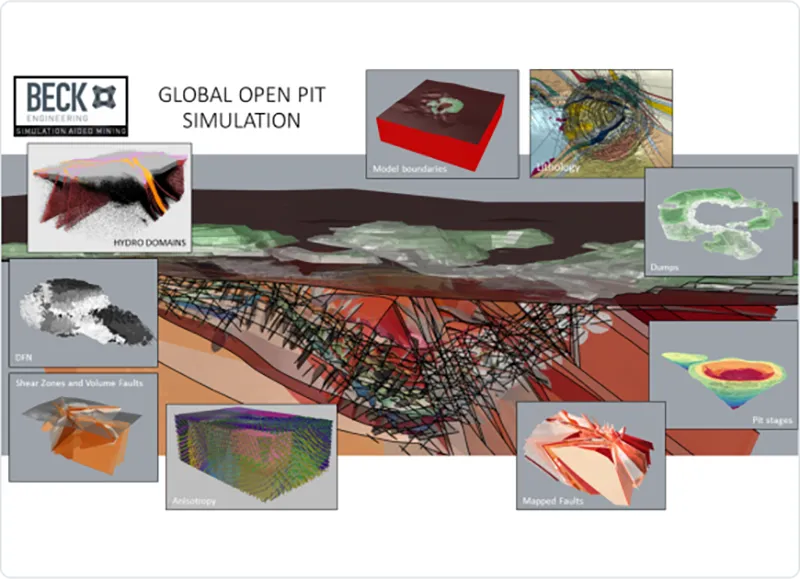
Mine design, sequence and geology input data and geometric complexity for a large open pit mine model. This model incorporates 100M Degrees of Freedom.
Our Tools & Expertise
We use Abaqus with LR4 hydro-mechanical coupling – an industry-leading FEM platform – tailored for mining applications. Our modelling approach accounts for the interaction between stress, water pressure, strain, and
structure, enabling:
- Simulation of ground movement and failure
- Calibration with real-world monitoring data
- Analysis of historical and potential failure mechanisms
Whether you’re in feasibility, operations, or closure planning, our 3D FEM capabilities help you make informed, safe and reliable decisions.
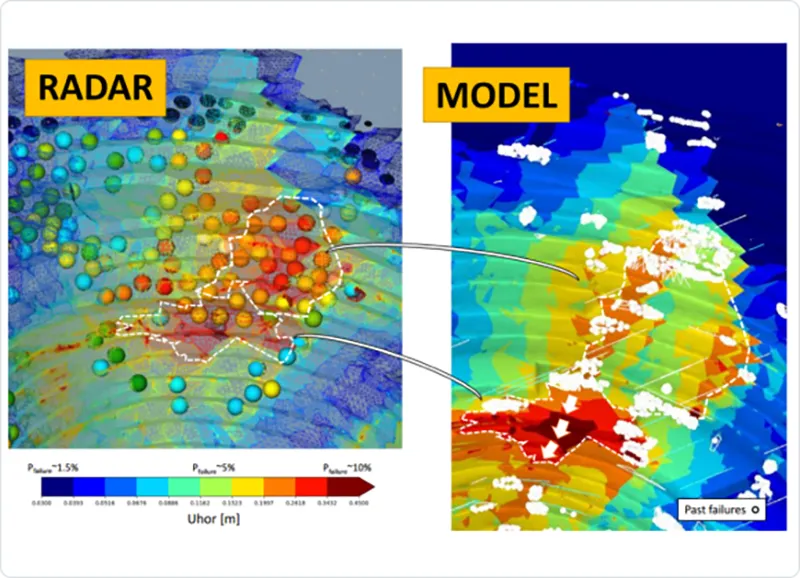
Comparison of modelled displacements, radar trends and measured failures.
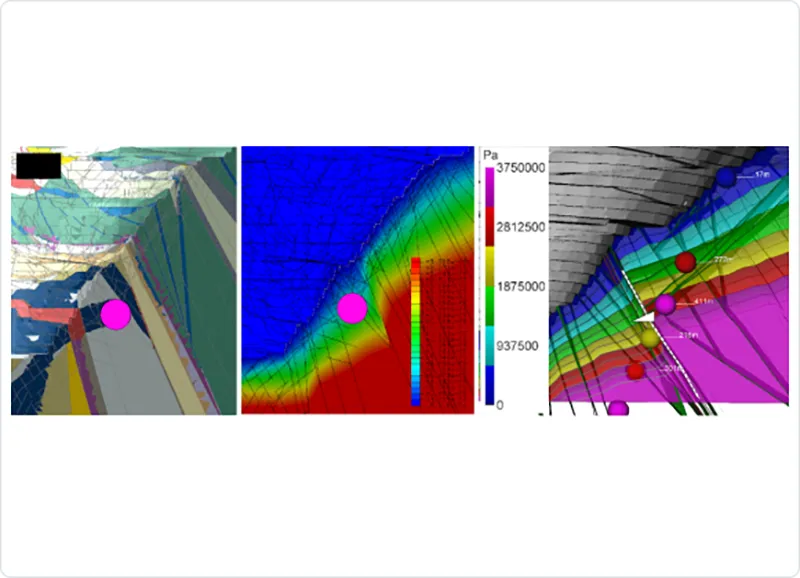
Example of calibrated LR4 model, matching complex water pressure distribution.
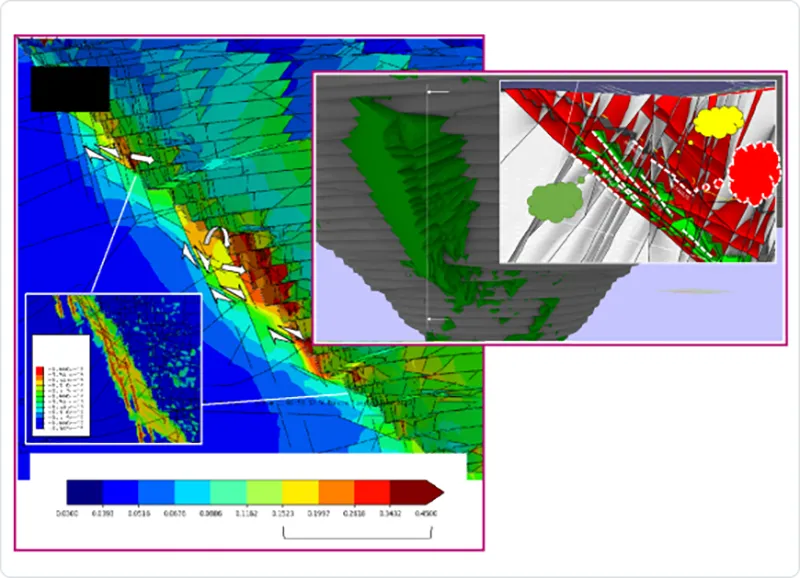
Visualisation of failure potential and active pressurisation by ingress of precipitation in an LR4 model at an example mine.
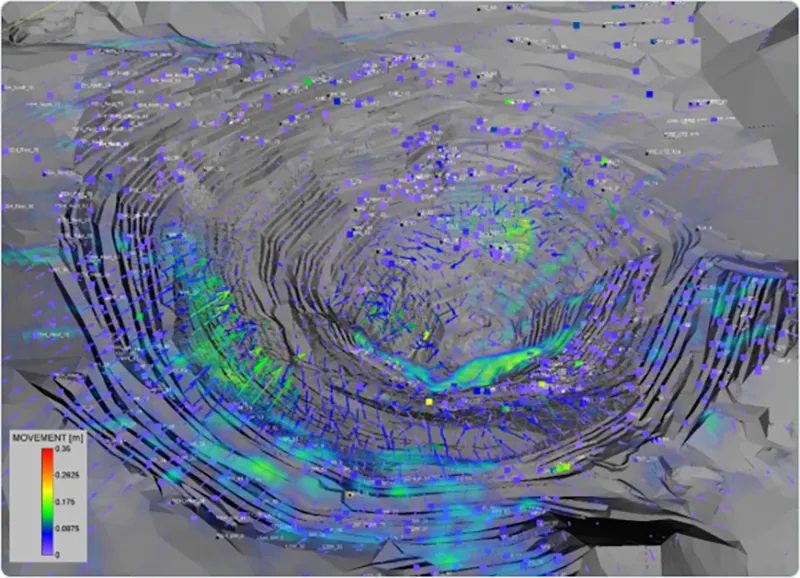
Example of modelled pit wall displacements as vectors and volume rendering compared to prism movement shown by the squares (colour scale of modelled and actual movement is the same).
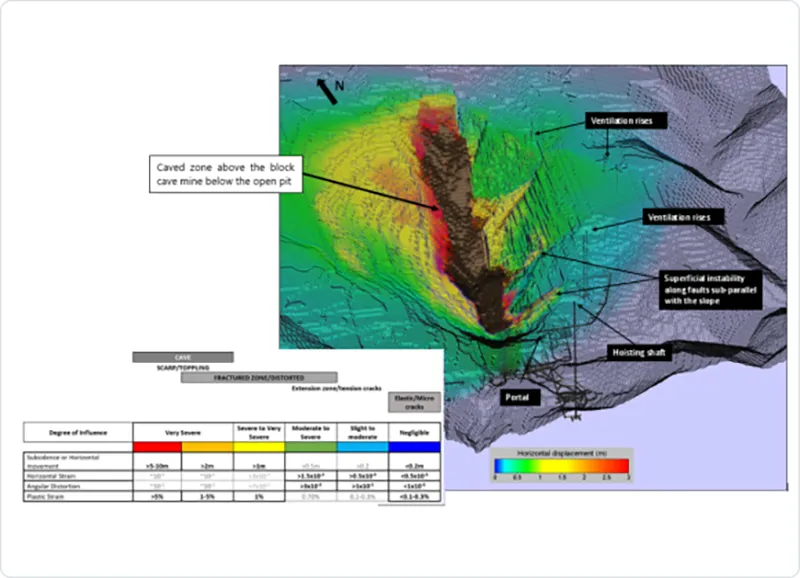
Subsidence forecasts and impacts to underground mine infrastructure for a large open pit with a block cave below.
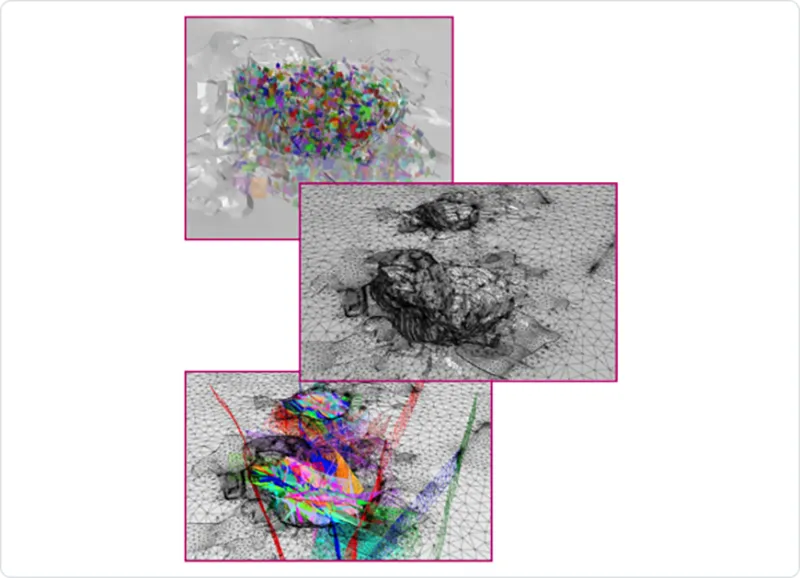
Example of model construction for a large open pit including ~200 major faults, ~3000 individual structures in the DFN and a detailed finite element mesh of the mine geometry.
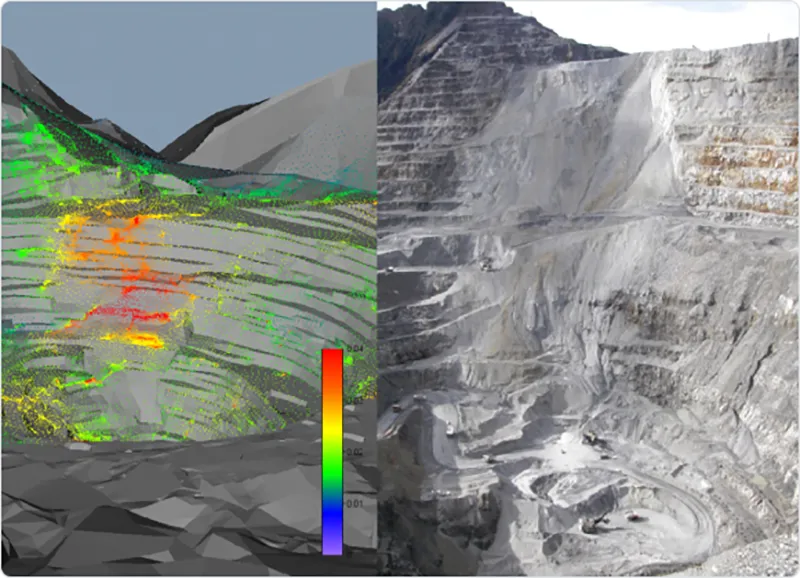
Example of simulated pit wall instability (left) and actual pit slope instability (right).
